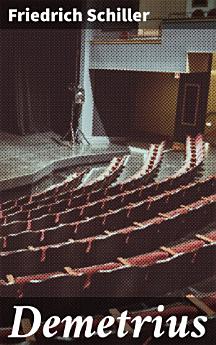Demetrius: A Play
พ.ย. 2019 · Good Press
eBook
128
หน้า
family_home
มีสิทธิ์
info
reportคะแนนและรีวิวไม่ได้รับการตรวจสอบยืนยัน ดูข้อมูลเพิ่มเติม
เกี่ยวกับ eBook เล่มนี้
Friedrich Schiller's "Demetrius" presents a profound exploration of identity, legitimacy, and the struggles for power through the lens of its titular character, a potential heir to the Russian throne. Written in blank verse, Schiller deftly intertwines elements of drama and poetry, creating a rich tapestry of emotional intensity and philosophical depth. Set against the backdrop of political intrigue, the play scrutinizes themes of usurpation and the quest for self-awareness, invoking a deep sense of tragic fate and moral conflict that resonates with the tumultuous historical context of 17th-century Russia. Friedrich Schiller, a prominent figure of the Sturm und Drang movement and later a key player in German Romanticism, drew upon his own experiences of exile and political turbulence in crafting this work. His passion for the ideals of freedom, humanity, and artistic expression compelled him to delve into the psychological complexities of demagoguery and personal strife. Schiller's intellectual engagement with history and philosophy informs his nuanced portrayal of characters caught in the throes of ambition and their quest for truth. "Demetrius" is highly recommended for readers interested in the intersection of history, philosophy, and the human condition. Schiller's masterful command of language and his exploration of existential questions ensure that this play not only entertains but also provokes thoughtful reflection. It invites the audience to consider the price of ambition and the struggles inherent in the search for identity and belonging.
ให้คะแนน eBook นี้
แสดงความเห็นของคุณให้เรารับรู้
ข้อมูลในการอ่าน
สมาร์ทโฟนและแท็บเล็ต
ติดตั้งแอป Google Play Books สำหรับ Android และ iPad/iPhone แอปจะซิงค์โดยอัตโนมัติกับบัญชีของคุณ และช่วยให้คุณอ่านแบบออนไลน์หรือออฟไลน์ได้ทุกที่
แล็ปท็อปและคอมพิวเตอร์
คุณฟังหนังสือเสียงที่ซื้อจาก Google Play โดยใช้เว็บเบราว์เซอร์ในคอมพิวเตอร์ได้
eReader และอุปกรณ์อื่นๆ
หากต้องการอ่านบนอุปกรณ์ e-ink เช่น Kobo eReader คุณจะต้องดาวน์โหลดและโอนไฟล์ไปยังอุปกรณ์ของคุณ โปรดทำตามวิธีการอย่างละเอียดในศูนย์ช่วยเหลือเพื่อโอนไฟล์ไปยัง eReader ที่รองรับ








